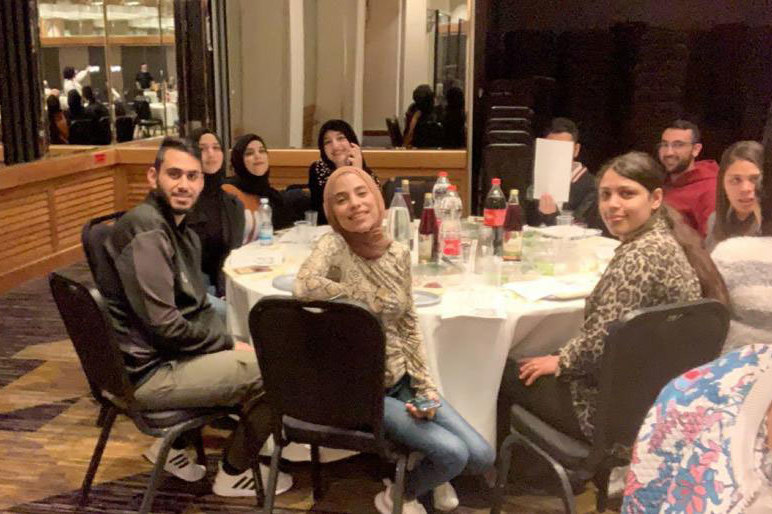It’s Passover! Are you invited?

Well, if you were a Palestinian guest at Israel’s Hotel Corona, then yes! Despite the generational divide between Israelis and Palestinians, all residents of Hotel Corona ended up celebrating the Jewish tradition of Passover together. Originally this wasn’t planned and at the beginning of the event, two separate Sedars took place between secular and orthodox Jews. Though the fact that guests spent weeks fighting the coronavirus together, they could no longer keep themselves apart as Passover began. Which raises the question: why would they be willing to partake in this unifying event? In NPR’s “Rough Translation Podcast: Hotel Corona” the truth is revealed and the intentions of both Israeli and Palestinian alike are left in the open for us to absorb.
What is Hotel Corona?
Hotel Corona’s official name is Dan Hotel located in Jerusalem. On the onset of the coronavirus pandemic, the building was leased to the Israeli government for the urgent purpose of quarantining citizens. Since there was an immediate need to contain the virus, the Israeli government did not have the chance to prepare separate buildings for Israelis and Palestinians.
Isn’t Passover only for Jews?
Yes. In the text of Exodus, it illustrates why Passover is exclusively for Jews. Before, Passover existed, the Israelites were enslaved by the Egyptians for many generations. This led God to free the Israelites, his chosen people. He then instructed them to remember his righteous act through Passover. Within the original Sedar order, it states
“The Lord said to Moses and Aaron: This is the ordinance for passover: no foreigner shall eat of it,”(Exodus 12:43)
“If an alien who resides with you wants to celebrate the passover to the LORD, all his males shall be circumcised; then he may draw near to celebrate it; he shall be regarded as a native of the land”(Exodus 12:48).
This clearly separates Israelites from non-Israelites, making the celebration of Passover a defining feature of Jewish identity. Based on the text, strangers are only able to celebrate with Jews if they convert to Judaism.
By contrast, Hotel Corona’s Passover evoked themes of unity with strangers. This entirely goes against the values of Passover seen in Exodus. To emphasize, we must recognize that Hotel Corona Palestinians did not convert whatsoever to Judaism. Additionally, the Israelis in Hotel Corona denied their own beliefs by openly inviting strangers to Passover. Today, depending on if a more liberal or conservative Jew is hosting a Passover, strangers may or may not been invited.
How did Segregation affect the guests of Hotel Corona?
In Exodus, it is apparent that Passover makes Jews distinct from the rest of the world. Additionally, today, segregation is very much prevalent within Israel between Israelis and Palestinians. To add this struggle is immensely rooted in religious identity. In the text of Exodus, the Israelites are not only set apart by God from the rest of the world, but they are given “the promised land” – Israel. Today, both Israelis and Palestinians feel entitled to Israel given that it’s Jews’ “promised land”, and Palestinians already lived in the land before Israelites arrived there. Ultimately, these groups’ inability to coexist has led to an ongoing conflict within the region. The repercussions of this conflict have resulted in the maltreatment of Palestinians; such as the lack of the right to vote and move freely without enduring dehumanizing checkpoints.
Hotel Corona wasn’t exempt from these societal divisions. Those who identified as orthodox, secular, or Muslim, gravitated towards their own. However, since Israelis and Palestinians were faced with a common, horrific danger, the coronavirus, all guests were able to console each other regardless of their identity.
What does this imply?
What does this imply? We are able to focus on the similarities of oppression between Israel and Palestine and the Israelites & Egyptians. For example, Palestinians have been subject to deadly government force due to riots and lost their homes due to demolition. In Exodus, the Egyptians oppressed the Israelites by also killing Israeli newborn sons to control their growing population.
“The king of Egypt said to the Hebrew midwives, one of whom was named Shiphrah and other Puah, “When you act to the Hebrew women, and see them on the birthstool, if it is a boy, kill him; but if it is a girl, she shall live.” (Exodus 2:15-16)
This parallel allows us to recognize that Israel’s oppression of Palestine mirrors ancient Egypt’s oppression of Israelites. With this in mind, we are able to think critically about how the text of Exodus can be interpreted in a contemporary context rather than the original context. Let’s hope through this new perspective on the practice of Passover and the text of Exodus, Israelis, and Palestinians can gravitate towards peace.

I thought this episode of Rough Translation was so interesting!
Thank you, I agree!